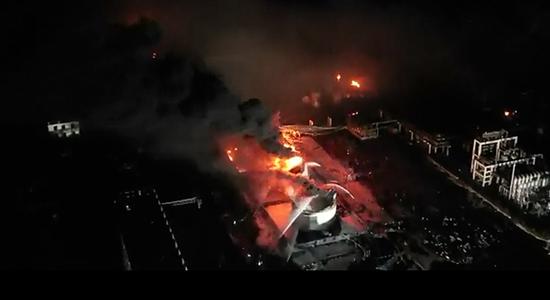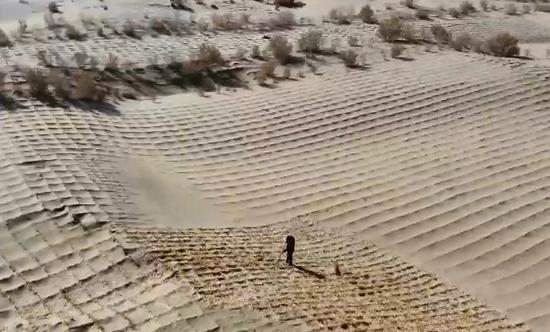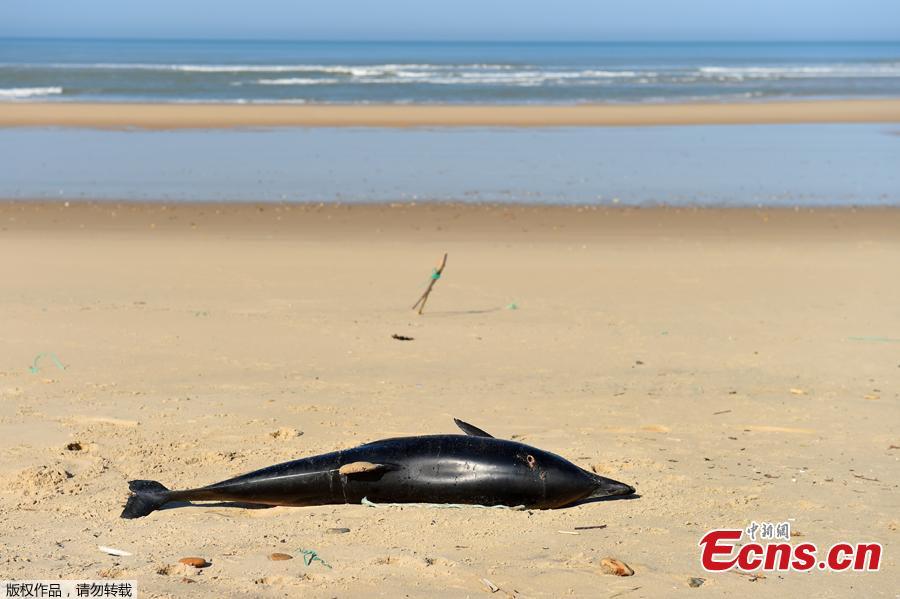
A dead dolphin with the world "vu" ("checked" in French) lacerated on its skin lies on a beach of the southwestern France city of Tarnos on March 21, 2019. Over 1,100 beached dolphins have been recorded on the French Atlantic coast, mainly in the Vendee, Charente-Maritime and Gironde deprtments, according to the Pelagis Observatory, a marine mammal and seabird research laboratory based in La Rochelle. "We have dolphins arriving on the coast with marks, we can prove that it's accidental capture but we can not detect what fishing gear has contributed to this." We need to know exactly what it's happening", said Willy Dabin of the Pelagis Observatory.(Photo/Agencies)
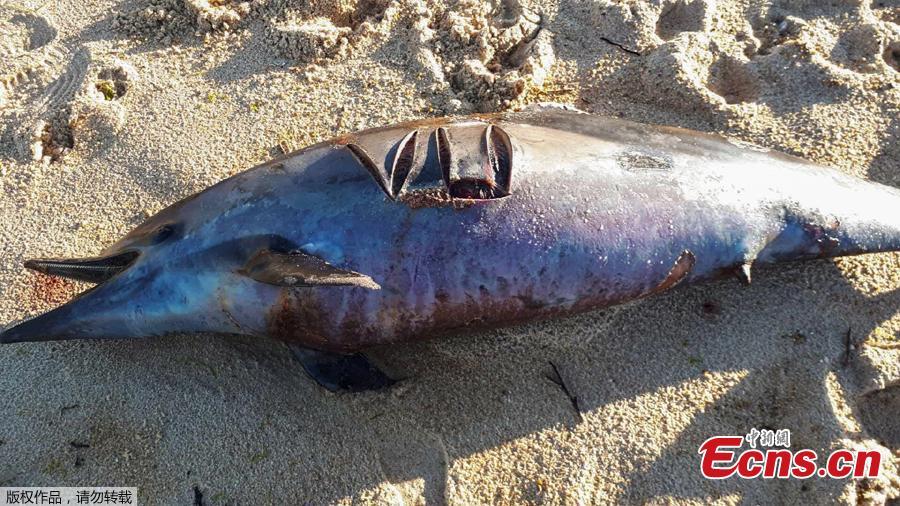
A dead dolphin lies on a beach of the Atlantic Ocean near Lacanau, southwestern France, on March 22, 2019. Over 1,100 beached dolphins have been recorded on the French Atlantic coast, mainly in the Vendee, Charente-Maritime and Gironde deprtments, according to the Pelagis Observatory, a marine mammal and seabird research laboratory based in La Rochelle. "We have dolphins arriving on the coast with marks, we can prove that it's accidental capture but we can not detect what fishing gear has contributed to this." We need to know exactly what it's happening", said Willy Dabin of the Pelagis Observatory. (Photo/Agencies)
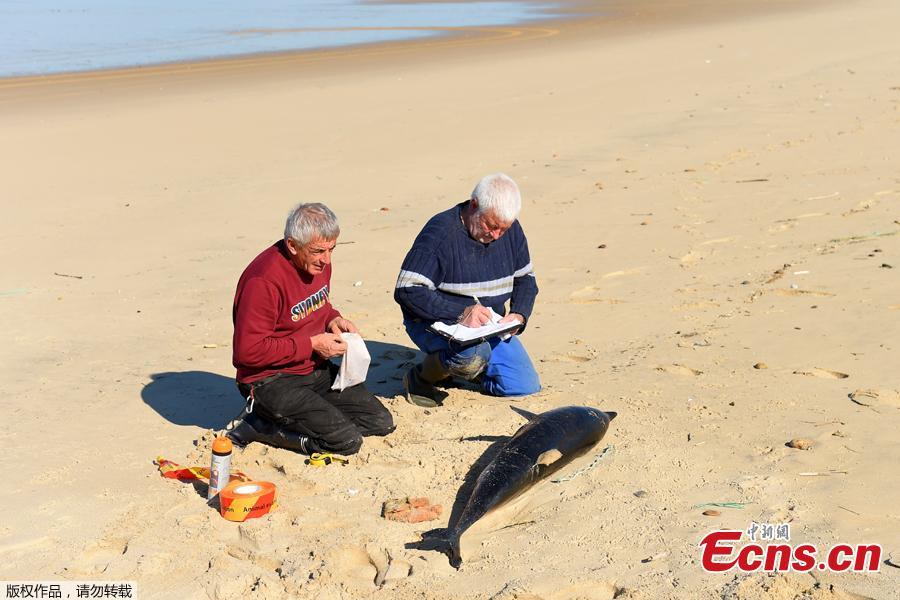
Volunteers of the Pelagis Obsevatory examine a dead dolphin on a beach of the Atlantic Ocean near Lacanau, southwestern France, on March 22, 2019. Over 1,100 beached dolphins have been recorded on the French Atlantic coast, mainly in the Vendee, Charente-Maritime and Gironde deprtments, according to the Pelagis Observatory, a marine mammal and seabird research laboratory based in La Rochelle. "We have dolphins arriving on the coast with marks, we can prove that it's accidental capture but we can not detect what fishing gear has contributed to this." We need to know exactly what it's happening", said Willy Dabin of the Pelagis Observatory. (Photo/Agencies)






















